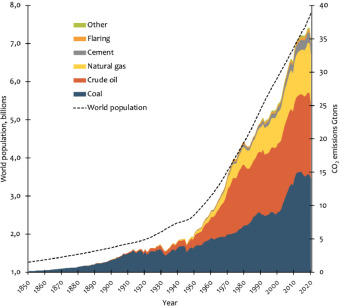Elsevier,
iScience, Volume 26, 20 January 2023
In this article, the authors used an Energy Transition Index to characterize the city-level energy transitions from energy system performance and transition readiness dimensions for 282 cities in China. They estimate that China’s energy and carbon intensity could decrease by 34% and 32%, respectively, and that carbon per capita could fall by 17% if each city modestly follows the sustainable development path forged by the best performing cities with similar economic structures.
Elsevier,
Advances in Nutrition, Volume 14, January 2023
The article discusses the urgent need for alternative food sources due to growing food security challenges exacerbated by overpopulation, pandemics, political conflicts, and climate change. Microalgae are highlighted as promising alternative protein sources due to their high protein content, essential amino acids, and environmental benefits. However, challenges like cultivation costs, protein extraction, and sensory qualities need to be addressed. The article advocates for the use of systems biology and artificial intelligence (AI) to optimize the growth and protein yield of microalgae, leveraging omics data and computational models for improved outcomes.
Elsevier,
Neuroscience & Biobehavioral Reviews,
Volume 145,
2023
This article ties to SDG 3. Analyzing relations among neuronal, endocrine, immune, and biochemical signatures of trauma and internalizing and externalizing behaviors, including the role of personality traits in shaping these conducts, this review highlights that the marked effects of traumatic experience on the brain/body involve changes at nearly every level of analysis, from brain structure, function and connectivity to endocrine and immune systems, from gene expression (including in the gut) to the development of personality.
Elsevier,
The Lancet Planetary Health, Volume 7, Issue 1, January 2023, Pages e97-e102
This Personal View supports SDGs 3 and 16 by presenting a case study using Indigenist health humanities to offer a way to understand planetary health. The authors indicate that embedding Indigenous knowledge and voices into planetary health education is important as part of decolonising learning in health professional education.
Elsevier,
Journal of Nutrition, Volume 153, January 2023
This study aimed to to examine the associations between dietary nutrient density and climate impact and MI and stroke HRs, thereby investigating the co-benefits and trade-offs between nutrition, dietary climate impact, and cardiovascular health, within a population-based prospective cohort in northern Sweden. Importantly, the results indicate an association between lower dietary climate impact and higher MI HRs for men, both when nutrient density was below median values and when nutrient density was not considered. For women, there was no significant association between dietary climate impact and MI HR, although a trend similar to that for men was noted when nutrient density was below median values. Furthermore, no association between nutrient density and MI or stroke HRs was observed, except for a protective effect against stroke among women with higher nutrient density when nutrient density was analyzed without considering climate impact.
Elsevier,
Journal of African Earth Sciences, Volume 197, January 2023
This article supports SDGs 13, 15 and SDG 11 by exploring the utilization of soil microbe based desertification management practices and highlighting emerging technologies in the field. It discusses the policy implications and strategies that can support


